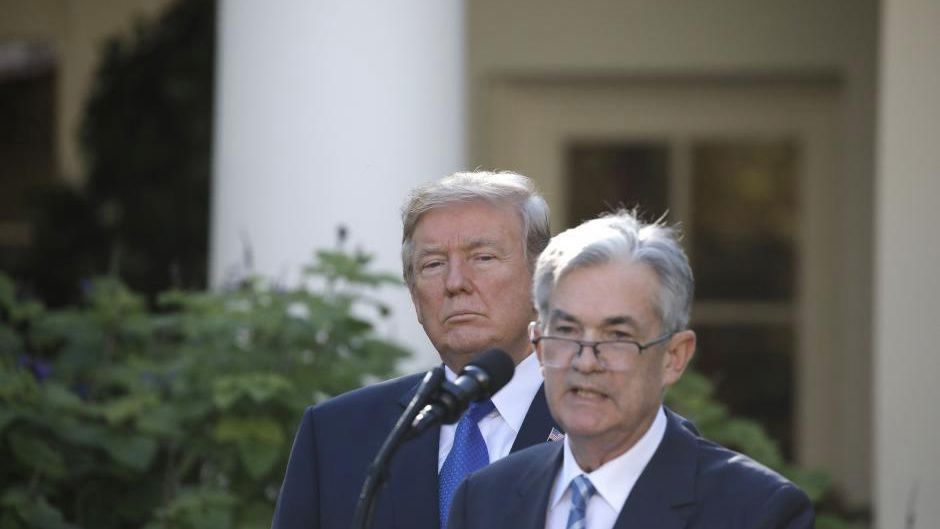
Business
11:14, 03-Nov-2017
Fed Governor Powell named to lead US central bank
CGTN's Yan Qiong

US President Donald Trump on Thursday nominated Jerome Powell to lead the Federal Reserve and be his “strong, committed and smart” independent co-steward of the economy, in a rare announcement.
Powell, 64, would be elevated from a member of the Board of Governors to lead the 104-year-old central bank. The Senate is expected to confirm his nomination for the four-year term.
“Today is an important milestone on the path to restoring economic opportunity to the American people,” Trump said at a ceremony in the White House Rose Garden.
“I am both honored and humbled by this opportunity to serve our great country,” said Powell in brief remarks. “If I am confirmed by the Senate, I will do everything within my power to achieve the goals assigned to the Federal Reserve by the Congress: stable prices and maximum employment.”
Powell would take the reins from Janet Yellen when her term expires in early February next year.
Traders breathed a sigh of relief over the nomination, as Wall Street likes Powell for his reputation of being dovish on monetary policy, at least for a Republican, and the markets took the announcement in stride, Dow Industrials advancing about 60 points in the half-hour or so after Trump spoke.
Powell has never dissented from any decision since becoming governor in May 2012, which is to say he’s agreed to lift interest rates four times in five years.
He has embraced the Yellen Fed’s monetary policy, keeping the faith that a tighter job market will eventually push wages higher and end a lengthy period of worryingly low inflation.
It is likely this will be seen as a less risky choice with the economy growing solidly and US stock markets near record highs.
Speaking of how emerging markets would react to the Fed normalization, Powell didn’t imply that aggressive rate hikes were in store.
“One factor that favors easier adjustment in [emerging-market economies] is that US monetary policy normalization has been and should continue to be gradual, as long as the US economy evolves roughly as expected,” Powell told a banking conference this month.
Beyond monetary policy, Powell takes a more laissez-faire stance on regulation. That should leave him in a good position to work with the new vice chairman for supervision, Randal Quarles, who like Powell, once worked at The Carlyle Group.
He expressed support for removing the qualitative standard applied by regulators to regular stress testing of banks, called parts of the Dodd-Frank Act "unnecessarily burdensome," at the Global Finance Forum in Washington, D.C.
Powell has maintained that many of the too-big-to-fail regulations were "inappropriately applied to small and medium-sized" banks.
"We've seen a great deal of progress," he said. "I do think we're getting to the point where qualitative supervision of risk management can no longer be part of the stress test but will return to being part of the normal supervision of firms," Powell has been known for saying.

SITEMAP
Copyright © 2018 CGTN. Beijing ICP prepared NO.16065310-3
Copyright © 2018 CGTN. Beijing ICP prepared NO.16065310-3